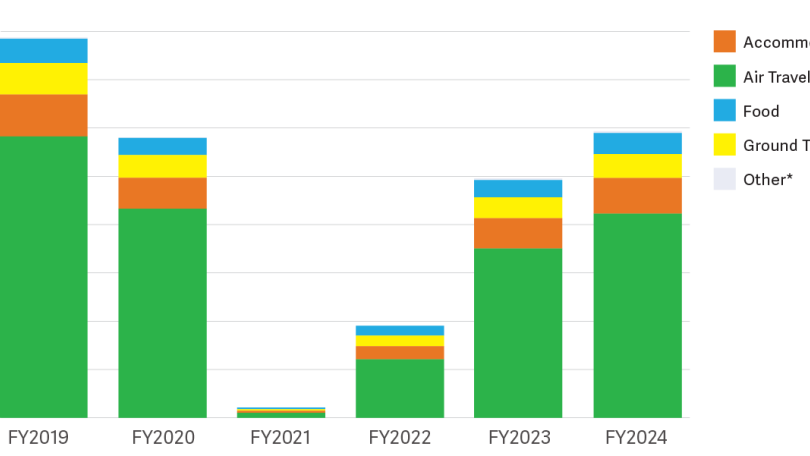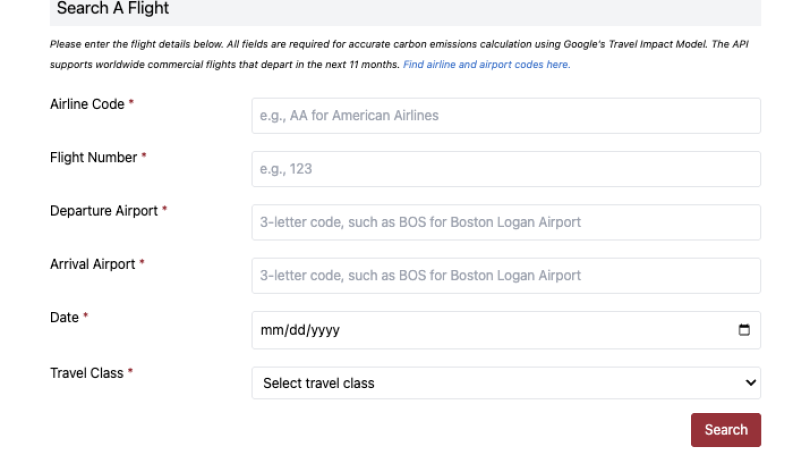
Air Travel Carbon Offset Program

Explore Emissions Data
Explore and download travel emissions data at the MIT Business Travel - Scope 3 Emissions in the Sustainability DataPool. Access available to the MIT Community. Please authenticate with your MIT Touchstone account.

Approach
To reduce the carbon footprint of MIT's business travel, key components of the Air Travel Carbon Offset Program include:
Voluntary Participation: We highly recommend that travelers consider offsetting MIT business travel emissions through the Air Travel Carbon Offset Program.
Feedback and Refinement: This is a new program designed to initiate the process of carbon offsetting air travel. We encourage participation and community feedback and will refine the program for broader adoption.
Ongoing Review: We will collect data and gather feedback from program participants to improve the program.
Convenient Process: We have integrated the program into MIT's existing Buy-to-Pay (B2P) platform to make it easy for participants to purchase carbon offsets in the same way they purchase goods at MIT. Travelers should purchase carbon offsets after they complete a trip on MIT business. These purchases are non-refundable.
Organizational Collaboration: MIT is contracting with Climate Vault, a non-profit organization, to assist our carbon offset efforts. Climate Vault provides a clear and efficient way to offset air travel emissions by buying carbon permits from regulated government markets.
MIT Air Travel Climate Impact Calculator
The MIT air travel climate impact calculator is intended to provide the MIT community with a method to learn about the climate impacts from flights used for MIT-related travel. This tool provides detailed numbers on flight emissions and offset costs for a range of scenarios. Access available to the MIT Community. Please authenticate with your MIT Touchstone account.


